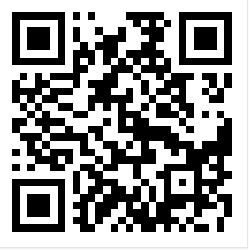Why face shields may be better coronavirus protection than masks alone
Time:2022-08-23
Views:180
SAN FRANCISCO — Officials hope the widespread wearing of face coverings will help slow the spread of the coronavirus. Scientists say the masks are intended more to protect other people, rather than the wearer, keeping saliva from possibly infecting strangers.
But health officials say more can be done to protect essential workers. Dr. James Cherry, a UCLA infectious diseases expert, said supermarket cashiers and bus drivers who aren’t otherwise protected from the public by plexiglass barriers should actually be wearing face shields.
Face shields are more effective than masks in protecting the wearer from viral infection, Cherry said.
UPLAND, CA - MARCH 31, 2020 - Bibi Sheonarine shows a face mask sewn by her. Sheonarine, an Upland resident, seeing shortage of face masks supply in prevailing coronavirus pandemic, started sewing masks at home and distributing free to local doctors and hospitals. After sewing more then 400 masks and demand masked increased so much that she could not handle alone. Sheonarine posted on an on-line neighborhood group Nextdoor and FaceBook, asking people to help her in producing masks. Immediately she got tremendous response and few days more then two dozen ladies are involved in sewing masks. (Irfan Khan / Los Angeles Times)
Why are masks not that great at protecting the wearer?
Masks and similar face coverings are often itchy, causing people to touch the mask and their face, said Cherry, primary editor of the “Textbook of Pediatric Infectious Diseases.”
ADVERTISEMENT
That’s bad because mask wearers can contaminate their hands with infected secretions from the nose and throat. It’s also bad because wearers might infect themselves if they touch a contaminated surface, like a door handle, and then touch their face before washing their hands.
Why might face shields be better?
“Touching the mask screws up everything,” Cherry said. “The masks itch, so they’re touching them all the time. Then they rub their eyes. ... That’s not good for protecting themselves,” and can infect others if the wearer is contagious.
He said when their nose itches, people tend to rub their eyes.
Respiratory viruses can infect a person not only through the mouth and nose but also through the eyes.
A face shield can help because “it’s not easy to get up and rub your eyes or nose and you don’t have any incentive to do it” because the face shield doesn’t cause you to feel itchy, Cherry said.
Dr. Robert Kim-Farley, an epidemiologist and infectious diseases expert at the UCLA Fielding School of Public Health, said face shields would be helpful for those who come in contact with lots of people every day.
“A face shield would be a very good approach that one could consider in settings where you’re going to be a cashier or something like this with lots of people coming by,” he said.
Cherry and Kim-Farley said plexiglass barriers that separate cashiers from the public are a good alternative. The barriers do the job of preventing infected droplets from hitting the eyes, Kim-Farley said. He said masks should still be used to prevent the inhalation of any droplets.
ORANGE, CA -- TUESDAY, MAY 5, 2020: Armando Mendoza, 53, of Anaheim, who was the hospital‘s second-ever COVID-19 patient, spent 45 days at St. Joseph Hospital, the longest local stint of any COVID-19 patients, celebrates with gratitude to God, all his health-care professionals (his nurse, Puynh Nguyen pushes his wheel chair and his doctor, Dr. Jooby Babu to his right) and his family and supporters as he is released to his awaiting family with applause and salutes from hospital workers in Orange, CA, on May 5, 2020. Mendoza was healthy and had no underlying health conditions when he contracted the virus. (Allen J. Schaben / Los Angeles Times)
What does L.A. County’s top public health official say about wearing face shields?
Barbara Ferrer, director of the Los Angeles County Department of Public Health, said Thursday that healthcare institutions are still having problems procuring enough personal protective equipment to protect those working with sick people. She urged that face shields be reserved for healthcare workers for now.
“I don’t think it’s a bad idea for others to be able to use face shields. I just would urge people to — if you can make your own, go ahead and make your own,” Ferrer said. “Otherwise, could you just wait a little while longer while we make sure that our healthcare workers have what they need to take care of the rest of us?”
LOS ANGELES, CA-MARCH 26, 2020: Members of the Los Angeles Fire Dept. wear protective gear while handing out kits to people to swab the inside of their mouths to test for the coronavirus, inside a parking lot on Stadium Way, near Dodger Stadium. Cars in background are drivers, waiting in what was over a 2 hour line, by appointment only to be tested. (Mel Melcon/Los Angeles Times)
Are there any reports showing how masks’ usefulness might be limited?
Face masks don’t protect wearers from the virus getting into their eyes, and there’s only limited evidence of the benefits of wearing face masks by the general public, experts quoted in BMJ, formerly known as the British Medical Journal, said recently.
Cherry pointed to several older studies that he said show the limits of face masks and the strengths of keeping the eyes protected.
One study published in the Journal of the American Medical Assn. in 1986 showed that only 5% of goggle-wearing hospital staff in New York who entered the hospital room of infants with respiratory illness were infected by a common respiratory virus. Without the goggles, 28% were infected.
The goggles appeared to serve as a barrier reminding nurses, doctors and staff to not rub their eyes or nose, the study said. The eyewear also acted as a barrier to prevent infected bodily fluids from being transmitted to the healthcare worker when an infant was cuddled.
A similar study, coauthored by Cherry and published in the American Journal of Disease of Children in 1987, showed that only 5% of healthcare workers at UCLA Medical Center using masks and goggles were infected by a respiratory virus. But when no masks or goggles were used, 61% were infected.
A separate study published in the Journal of Pediatrics in 1981 found that the use of masks and gowns at a hospital in Denver did not seem to help protect healthcare workers from getting a viral infection.
A A person walks in Downtown LA near the corner of 7th and Figueroa wearing a protective mask on Thursday, February 27, 2020 in Los Angeles, California. (Jason Armond / Los Angeles Times)
What’s the latest advice on how to wear a face covering?
The California Department of Public Health says that the public should wash their hands before and after touching a face covering or adjusting it. State officials suggest laundering cloth face coverings after each use or at least daily with hot water and drying on a hot cycle, and if you must rewear a used face covering, “wash your hands immediately after putting it back on and avoid touching your face.”
State officials said people should discard cloth face coverings that no longer cover the nose and mouth, are stretched out, have damaged ties or straps, cannot stay on the face or have holes or tears in the fabric.
The U.S. Centers for Disease Control and Prevention recommends wearing cloth face coverings in public settings, such as grocery stores, when it’s hard to stay six feet from anyone else and says people “should be careful not to touch their eyes, nose, and mouth when removing their face covering and wash hands immediately after removing.”
Why might face coverings be helpful?
One expert quoted by BMJ said lessening the dispersal of infected saliva from someone’s mouth might help slow the spread of the virus.
“If an aerosol droplet hits the weave of the mask fabric rather than the hole, it is clearly arrested,” Ian Jones, a professor of virology at the University of Reading, told BMJ. “They are not a cure, but they address the longer, flatter epidemic curve everyone is trying to achieve.”
Why some experts doubt cloth face coverings may be helpful
While a number of counties in California have required the wearing of face coverings in essential businesses, including Los Angeles County and most San Francisco Bay Area counties, some have not.
Dr. Robert Levin, Ventura County’s health officer, has wondered publicly how beneficial wearing cloth face coverings really is. Earlier this month, he urged the public to wear them when leaving the home if they would be around other people.
But Levin said this week he’d rather people working and shopping at, say, grocery stores wear paper masks instead of homemade cloth masks. The problem, however, is the severe shortage of medical-grade masks.
“There is a question about the homemade masks — the face coverings — and how effective they are,” Levin said at this week’s Board of Supervisors meeting.
“It has been shown that after laundering a cloth mask several times, the pores become so big that it really loses its effectiveness,” Levin said. Furthermore, he added: “At least half the time when people sneeze or cough or even speak in a loud voice, organisms come through a cloth mask.”
He also doubted people were washing their face coverings daily, as suggested by the state Department of Public Health. “That doesn’t happen. We don’t launder our masks every day. Who does that?” Levin said. “Some people might.”
Levin said he intends to make public a list of pros and cons of wearing cloth face coverings soon.
What’s the most important thing to keep in mind?
For the general public, keeping away from other people by at least six feet and staying at home as much as possible is still the best way to protect yourself, Cherry said.
.jpg)
adult face shield
.jpg)



